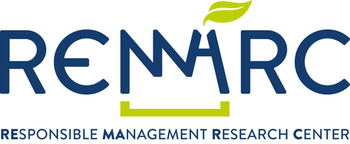Does the appropriation of knowledge through Intellectual Property Rights (IPRs) generate detrimental impacts on the economy and society? Under what conditions is this more likely to occur, and what are the policy challenges ahead to address these impacts? An ongoing stream of research has suggested that, in several contexts, the monopoly rents originated by IPRs may restrict access to useful knowledge and breakthrough innovations that can change or improve the lives of many. Because of IPRs, a significant share of the world population (often located in developing countries) may not be able to benefit from companies’ frontier scientific discoveries or technological advancements. For instance, IPR may hamper access to HIV and other life-saving treatments, or prevent indigenous communities and poor farmers from using seeds once they are patented.
These and similar issues pose a number of policy challenges, which need to be addressed to ensure that the configuration of the worldwide IPR does not undermine the fulfilment of fundamental human rights for some constituencies, and avoid clashes in the enjoyment of rights. Because IPRs are often controlled by innovative and highly reputable global players, making bold claims about their ethical standards, it is impellent to understand the nature of the emerging tensions between the exploitation of IPRs and the respect of fundamental rights. Research in this domain is scant and largely confined to law scholarship.
The aim of this workshop is to address this neglect in the economics and management literatures, also welcoming contributions from other scientific fields. Topics of interest include:
- The foundation of IPR: do IPR work as genuine property rights or are they just monopoly rents restricting access to knowledge and inventive activities?
- IPR protection on issues such as access to knowledge outputs, to data, to health treatment, to learn, to equipment and protection of the right to education, health, and democratic access to cultural and scientific outputs;
- IPR and access to seeds in agricultural production and access to food;
- Appropriation of indigenous knowledge by IPR and the principle of no arbitrary deprivation of property,
PROGRAM
8.30 – 9.00 Registration
9.00 – 9.15 Welcome Address by Elisa Giuliani (Universitá di Pisa)
Keynote
9.15 – 10.15 The global expansion of IPRs: effects on pharmaceutical R&D and access
Margaret Kyle – (Cerna) Mines ParisTech
Chair: Arianna Martinelli – Scuola Sant’Anna
10.15- 10.30 Coffee Break
10.30 – 12.45 Session 1
Chair: Mercedes Campi – CONICET and University of Buenos Aires
The double effect of Medicine Patent Pool (MPP) on the market for HIV generic drugs
Elena Romito – Scuola Superiore Sant’Anna
Right to Culture and Freedom of Arts and Science: Participation and Access
Caterina Sganga – Scuola Sant’Anna
Radical Innovations and Appropriability Strategies: Evidence from the Queen’s Award for Innovation
Giovanna Capponi – Scuola Superiore Sant’Anna
12.45- 14.00 Lunch
Keynote
14.00 – 15.20 “Against Intellectual Monopoly”: Twenty Years After
David Levine – European University Institute
Discussants:
Arianna Menciassi – Scuola Sant’Anna
Alessandro Nuvolari – Scuola Sant’Anna
Chair: Andrea Mina – Scuola Sant’Anna
15.20- 15.30 Coffee Break
15.30 – 17.00 Session 2
Chair: Federico Tamagni – Scuola Sant’Anna
Free access to scientific knowledge: Sci-hub as a natural experiment
Edoardo Ferrucci – LUISS University and GREThA (University of Bordeaux)
An updated and revised index of intellectual property protection for the agricultural sector. 1961-2017
Mercedes Campi – CONICET and University of Buenos Aires
17.00- 17.15 Coffee Break
17.15 – 18.00 Project Session
Chair: Alessandro Nuvolari – Scuola Sant’Anna
The role of creative Communities and entrepreneurs in producing digital content without formal intellectual property: The Case of Alternative Pornography
Marlene Le Kim – University of Strasbourg
Patent Dynamics of the “Dirty Dozen”
Elisa Giuliani – Universitá di Pisa
18.00 – 18.15 Wrap Up
Instructions for presentations
Paper presentation = 30 minutes
General discussion = 15 minutes
Organizing Committee
Elisa Giuliani, REMARC, Dipartimento di Economia e Management, University of Pisa, Italy.
Arianna Martinelli, Scuola Superiore Sant’Anna, Pisa, Italy
Alessandro Nuvolari, Scuola Superiore Sant’Anna, Pisa, Italy.
Info and contacts
For more information, please contact: ipr_hr_workshop@santannapisa.it
Other contacts: Elisa Giuliani (giulel@ec.unipi.it); Arianna Martinelli (arianna.martinelli@santannapisa.it)
Sponsors
This event has been equally sponsored by the University of Pisa and by the Istituto di Economia of the Scuola Sant’Anna.
Venue
The workshop is held in Aula 14 of the DAF Building, Scuola Superiore Sant’Anna, located in Via Cardinale Maffi, 27 (Pisa).
All welcome!






















